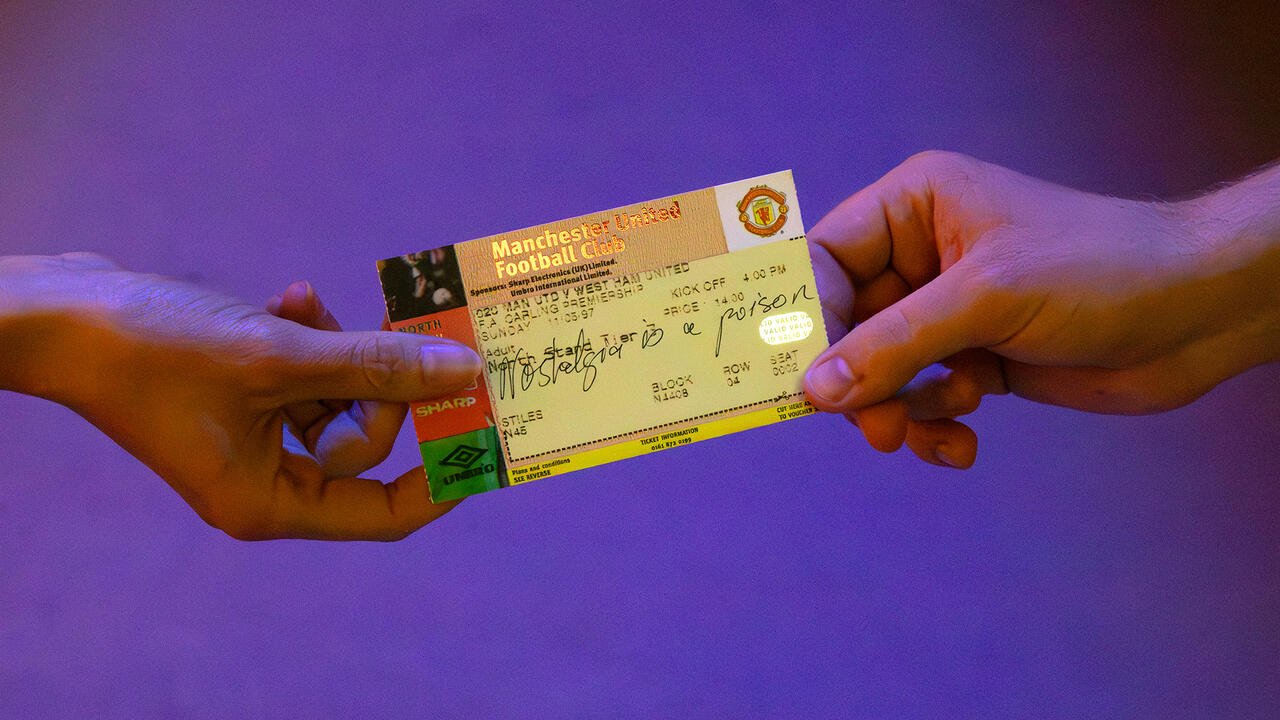How Do We Achieve a Global Conversation Without Entering a Pre-Babel World?
Adam Thirlwell and Hans Ulrich Obrist’s travelling project, ‘Studio Créole’ endeavoured to resolve this question as it premiered in Manchester
Adam Thirlwell and Hans Ulrich Obrist’s travelling project, ‘Studio Créole’ endeavoured to resolve this question as it premiered in Manchester

In his 1596 treatise, A View of the Present State of Ireland, the English poet Edmund Spenser posited the eradication of the Irish language as key to ‘curing’ the ‘diseased portion of the State’ and supressing uprisings by Irish people against British rule. ‘For’, he writes, ‘it hath ever been the use of the conqueror to despise the language of the conquered and to force him by all means to learn his.’ Today, the linguistic map of the world bears evidence of Spenser’s words, its shape dictated by the living history of European colonization. The homogenizing forces of globalization are rendering the breadth of cultural diversity narrower still – a story closely entwined with the ecological crisis. In a period of increasing isolationism, nationalism and xenophobia, greater dialogue is urgently needed, but how do we achieve a global conversation without entering a pre-Babel world?
‘Studio Créole’, which premiered at Manchester International Festival this July, endeavoured to resolve this question. Co-curated by novelist Adam Thirlwell and Hans Ulrich Obrist, the piece featured seven short stories by seven writers from seven countries, specially commissioned for MIF and read aloud by the authors in their respective languages – ranging from Icelandic to Gĩkũyũ. Each story was simultaneously translated into English by an interpreter and performed, line-by-line, by actress Lisa Dwan. Wearing bone conduction headphones (an idea introduced by ‘Studio Créole’ theatre director John Collins), the audience experiences the original, translated and performed version all at once. The multi-layered effect is surprisingly coherent.

As Thirlwell explained, one of the main impulses behind the work was: ‘to dismantle the way English asserts itself as the cosmopolitan language’ and contribute to the utopian project of world literature – a literature that is not bound-up in a nationalistic paradigm.
That some (though not enough) texts achieve sufficient prestige to be translated into multiple languages does not constitute world literature. The art of literary translation often prizes invisibility and ‘a translation isn’t valuable if it becomes so powerful that it obliterates the original,’ Thirlwell argues. ‘Studio Créole’ offers one way of resisting this hierarchy. Inspired by the 20th-century Martiniquan poet and philosopher, Édouard Glissant, who saw the blend of languages and cultures within the Antillean archipelago as a model for a global political process of preservation and exchange (‘créolization’), the performance celebrates multiplicity in opposition to the totalizing perspective of the neo-imperialist West. Designed by architect Rem Koolhaas with Federico Martelli and Cookies studio, its intimate setting echoed Glissant’s idea of archipelagic thought, with each writer-translator pair positioned on an island amidst the sea of audience, telling their stories and listening to others’ in turn.

Koolhaas’s design also reflected that of an international congress, with a central circular table at which all the writers and translators eventually arrived in a symbolic ‘coming together’ of voices. An august institution like the European Parliament (for which Koolhaas previously formed part of a think-tank) is one setting where live translation typically occurs, but others are in hospitals, court rooms and GP surgeries, where non-English speakers (in the case of the UK) are placed in positions of precarity, depending on their interpreters for accurate representation. In Koolhaas’s hall, large-screen projections magnify the authors’ facial expressions as they read and measure the reception of their re-told words, highlighting this subtext of risk, vulnerability and exposure.
‘Studio Créole’ will travel internationally and adapt to the language politics of each new place. While Dwan’s Irish accent added a layer of meaning to the UK rendition, at Carriageworks in Sydney, Thirlwell and Obrist hope to collaborate with an Indigenous Australian writer. The language of translation will always match the ‘host country’s’, though this raises new questions; the Abu Dhabi Festival organizers suggested that, although Arabic is the official language, English more often serves as the common bridge between the diverse, largely migrant population.

For MIF, the authors included: Adania Shibli (Palestine/Arabic), Alejandro Zambra (Chile/Spanish), Dubravka Ugrešić (former Yugoslavia/Croatian), Ngũgĩ wa Thiong'o (Kenya/Gĩkũyũ), Patrick Chamoiseau (Martinique/French), Sayaka Murata (Japan/Japanese) and Sjón (Iceland/Icelandic). Their stories, like their languages, varied widely, yet many of the broader themes of the overall piece surfaced within each contribution. In ‘Culture Shock’ (‘カルチャーショック’), for example, Murata vividly dramatizes the cultural domination and ‘saviour’ narrative of colonialism (starkly-apparent in Spenser’s A View). ‘Poetics of a Batouto’ (‘Poétique d’un Batouto’) by Chamoiseau – a key member of the Créolité literary movement – envisages an imaginary branch of Sapiens that manage to escape ‘the antagonistic corsets of species and communities’ and form ‘improbable groups that were not peoples, much less hordes, clans or tribes’ (as per the official English translation in the accompanying paperback designed by Irma Boom, printed alongside the original French version of the story). Importantly, the translators also received full credit for the skill and creativity that they brought to the project, and the fundamental role they played in enabling it to occur.
Before entering ‘Studio Créole’, I had the privilege of speaking, in English, to Ngũgĩ (who, during the late 1960s, decided to stop writing in English and write primarily in Gĩkũyũ; championing the richness of his original language and resisting the colonial dominance of English within literature). During the conversation, a metaphor rolled off his tongue that perfectly encapsulated the vision behind the project. The many languages of the world are like the instruments of an orchestra, he explained. Some are larger or louder than others, but each are of equal importance. For music to be achieved, the individual musicians must play together, listening and responding to the wider whole in a process of continual harmonious exchange. Every note respected; no single voice drowned out.
Main image: Actor Lisa Dwan performing with Studio Créole. Courtesy: Manchester International Festival



















